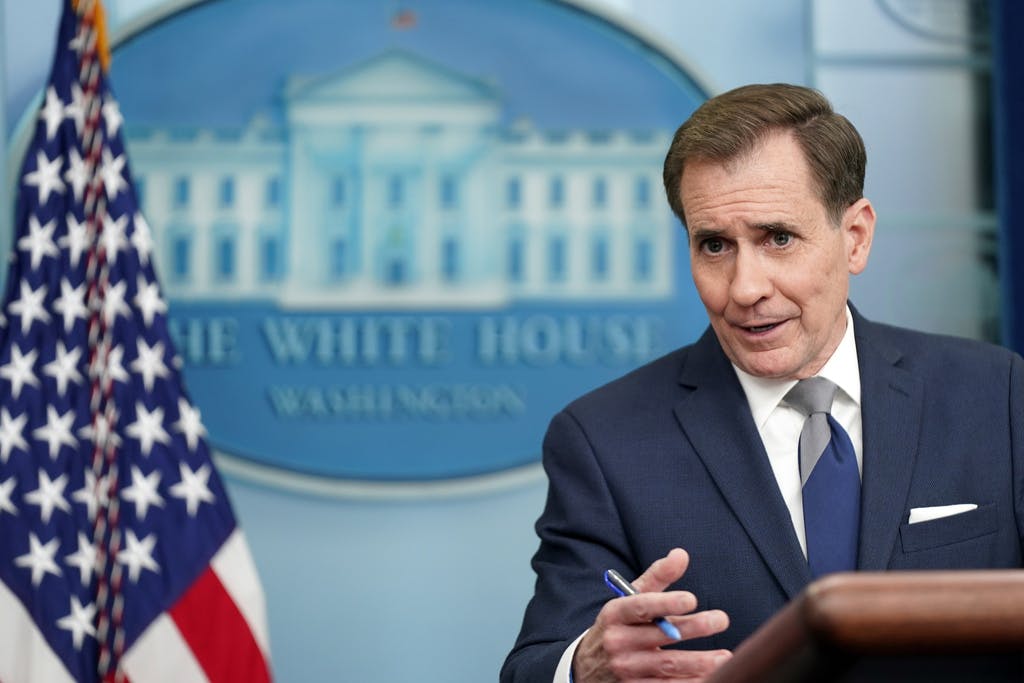Leaked Spy Agency Documents Put Into Question Work of America’s Spooks
American diplomats are trying to minimize the damage abroad as the leaked documents intensify fissures in South Korean politics, force Ukraine to alter spring battle plans, and anger Israelis.

As the Department of Justice investigates a leak of secret documents and the size of the debacle is assessed, one question arises: How good are America’s spooks at spying?
The justice department is investigating how a trove of top-secret documents from the Pentagon and other spy agencies found their way to social media sites such as Twitter, Telegram, and Discord, the latter of which is frequented by enthusiasts of Minecraft and other computer gamers.
“There is no reason for these documents to be in the public domain, and they need to be protected,” the national security council’s spokesman, John Kirby, said Monday.
Who leaked them? Was it a disgruntled Pentagon employee? Were the documents stolen by a foreign agency? If so, Russia would be an obvious top suspect. Were they real, or were they manipulated to fit an adversary’s narrative?
American diplomats are trying to minimize the damage abroad as the leaked documents intensify fissures in South Korean politics, force Ukraine to alter spring battle plans, and anger Israelis.
America and four countries it shares intelligence with — Australia, Canada, New Zealand, and Britain — are known as the five eyes, and even these weren’t spared. Some of the leaked documents were marked off-limits to the five eyes. Others that were made public are the product of foreign intelligence assessments, which could harm future cooperation.
Worse: Documents indicate that Pentagon intelligence analysts badly misread data collected through signal intelligence, known as sigint. Even if manipulated, some of the leaked documents reflect badly on Washington’s intelligence.
Some documents made public the wiretapping of top South Korean officials who discussed aid to Ukraine in unfavorable terms. Seoul has clearly been more reluctant than other American allies to support Ukraine.
While the Korean president took pains to clarify that the leaked material had not been authenticated and could be a forgery, the opposition attacked his leadership. It also went gun blazing after Washington. The wiretapping presents evidence of American “violation of South Korea’s national sovereignty” and “illegal espionage activities,” the opposition Democratic Party said in a statement.
On another front, one leaked document suggests that Britain’s Royal Navy plans to dispatch a new Queen Elizabeth-class aircraft carrier to the Pacific to counter Communist China’s power grabs there. As Yahoo News reports, the document also attempts to assess how Beijing would react to an incoming Labour-led government scrapping that plan.
Yet, it is quite unclear that Labour would necessarily be softer on Beijing than the current Tory government. In November, a Labour-led delegation arrived at Taipei, much to the chagrin of Beijing.
“China’s growth has been matched by greater repression at home and more assertive behavior abroad — in Hong Kong and Xinjiang, Taiwan, and the South China Sea,” the Labour shadow foreign secretary, David Lammy, told the Sydney Morning Herald.
The most glaringly misread analysis of an intercepted conversation had to do with Israel’s internal turmoil. As first reported by the New York Times, leaked Pentagon documents assessed that Israel’s Mossad agency is encouraging its officials and others in the country to revolt against the elected government.
According to sigint-based March 1 leaked documents, the leaders of that Israeli foreign intelligence agency “advocated for Mossad officials and Israeli citizens to protest against the new Israeli Government’s proposed judicial reforms, including several explicit calls to action that decried the Israeli Government.”
The early March date coincides with public statements by several retired Mossad directors, including Prime Minister Netanyahu’s close ally, Yossi Cohen, which expressed opposition to the proposed judicial reform. At the same time, the Israeli press widely reported that the current director, David Barnea, permitted lower-level Mossad officials to participate in protest as private citizens, and as long as they did not identify themselves as members of the organization.
None of these widely publicized facts add up to the Mossad brass “advocating” protest. Mr. Netanyahu’s government, which oversees Mossad, issued a statement saying that the leaked material was “mendacious and without any foundation whatsoever.”
Israelis of all stripes raised eyebrows at how public reports in the local press were included in a top-secret American document based on secret electronically intercepted communications. Even more so, they wondered about how the events were so badly misunderstood.
The leaked Pentagon assessment was “quite likely based on a mistake by American analysts,” a veteran Israeli military analyst, Ron Ben Yishai, wrote. An Israel-based New York Times reporter who has deep Mossad sources, Ronen Bergman, raised painful questions about the story he published as well.
Is the leak “genuine or a forgery?” Mr. Bergman tweeted. “If it’s real, does it mean that the U.S. is spying on its own ally? If it’s spying on Israel, are its conclusions necessarily accurate? If they aren’t accurate, what does it say about the quality of U.S. intelligence gathering and analysis?”
The Pentagon document leak is emerging as the latest in a host of intelligence fiascos. Beyond the Department of Justice, Congress should also make it a top priority to investigate — and include questions on our spies’ reading comprehension.

